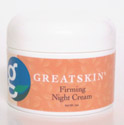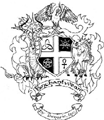
Aloe Vera is a plant and an herb. A species of aloe (Aloe vera) native to the Mediterranean region, a very short-stemmed plant grown widely in the tropics and as houseplants, whose thick, fleshy leaves yield a soothing mucilaginous juice or emoillient extract widely used in cosmetic and pharmaceutical preparations for its soothing and healing porpoerties.
- botanical information
- origin
- history
- part used
- astrological correspondences
- magick correspondences and uses
- health care
- Ayurvedic herbalism
- external skin care
- cautions and contraindications
botanical information:
Botanical name: Aquilaria vera or Aquilaria barbadensis
Common name: aloe vera, Barbados aloe, burn aloe, Chinese aloe, first aid plant, Indian aloe, medicinal aloe, miracle plant, true aloe, wand of heaven
Use the botanical name when ordering seeds (bulbs, etc.) or when looking up information in the library. Common names vary by nation, culture, and region, and sometimes the same common name is applied to different plants.
Family: Asphodelaceae
Height: 60-100 cm or 24-39 inches
Leaf: lanceolate
Flowering Time: summer
origin:
Origin: north Africa
history:
History: More than 2,000 years ago Witches discovered the healing properties of aloe. It was originally used to treat open wounds and to maintain healthy skin, uses that aare both still valid today.
Aloe appears in the Ebers Papyrus from the 16th century B.C.E., Dioscorides’ De Materia Medica, Pliny the Elder’s Natural History from the mid-first century C.E., and the Juliana Anicia Codex from 512 C.E.
Aloe is mentioned in the Gospel of John, chapter 19, verses 39 and 40 (note that the Gospel of John was not written by John, but rather written at least a century later by an unknown writer): “And there came also Nicodemus, which at the first came to Jesus by night, and brought a mixture of myrrh and aloes.”
part used:
Aloe leaves or gel derived from aloe leaves may be used to treat burns.
Aloe can be added to soap and creams as a skin conditioner.
|
Part Used: Gel (“juice”) extracted from the leaf (drunk or applied to the skin), or a dried and powdered latex extracted from the “peel” of the leaf (used as a laxative). Information courtesy of Mountain Rose Herbs |
|
astrological correspondences:
Astrological planet: Moon ![]()
magickal correspondences and uses:
Perfumes: Vera perfume corresponds with thursday and is a good perfume for thursdays.
Gender: feminine (traditional western European magickal gender)
Western element: water
Magickal uses: beauty, peace, protection, success
Lunar spells: Aloe (as an herb) may be used in as an ingredient or substitute for magick spells and formulas related to lunar matters (compassion, dreams, family, fertility, gardening, healing, love, peace, promoting sleep, prophecy, prophetic (or psychic) dreams), psychic awareness, sleep, and spirituality). Be careful about substitutions for preparations that will be ingested or come in contact with the skin. These substitutions do not apply to medical uses. See the article on the Moon for a list of herbal substitutes for aloe vera.
Magickal substitutions: Rosemary usually may be safely substituted for any herb in magick spells and rituals. Roses may safely be substituted for any flower.

Magical Uses information courtesy of 
|
health care uses:
Health Notice: Attempting to be an amateur doctor is potentially dangerous to your health. This web page is not professional medical advice. Nothing on this website should be considered as a substitute or replacement for professional medical advice. Persons should seek the advice of qualified health providers. Self-medication should not be used as a substitute for professional medical care. Please confirm all self-medication with your doctor or health care professional. See the article on healing for recommended healers.
traditional medicine:
Traditional Medicine: While many traditional practices have been scientifically verified, some are now known to be dangerous. Seek the advice of qualified health care providers.
History: Aloe was discovered about 2,000 years as a treatment for wounds and to maintain healthy skin, two uses that remain valid today.
Ayurvedic herbalism:
Ayurvedic Doshas: PKV= Pitta balanced; Kapha balanced; Vata balanced.
Part Used: gel (fresh or powdered)
For more information, see the article on Ayurvedic medicine.
herbal healing:
Medicinal uses: Aloe leaves or gel may be applied directly to burn wounds. Aloe is a treatment for wounds, helping to protect and heal the skin. Aloe is useful for helping maintain healthy skin and keeping the skin young looking. Aloe is an excellent ingredient for soaps and skin creams. Aloe can be used as an ingredient in hair conditioners.
external care:
Avoid lipstick with aloe vera. Although aloe vera is good for the skin, it can irritate the lips.
 External skin care: Aloe vera in Great Skin Firming Night Cream: “Works by increasing your skin’s vitality and sealing in moisture. With collagen to restore elasticity and Vitamin E for healing. Deeply penetrates to prevent excess dryness. With sesame oil, olive oil, apricot kernel oil, jojoba oil, avocado oil, squalene, kakui nut oil, aloe vera, Vitamin E, lemon balm, comfrey, sage, marigold, marsh mallow, teaberry, jasmine, cucumber, Vitamin A, and Vitmin D. Firming night cream is a heavy moisturizer that deeply penetrates the skin and will prevent excess dryness. This therapeutic vitamin and moisturizing treatment increases the skin’s vitality and seals in the moisture, augmenting skin’s resilience. Contains collagen which restores elasticity, and vitamin E which helps in healing the skin. Nourishes the skin as it firms. Apply before bedtime after cleansing and toning.” Great Skin Firming Night Cream
External skin care: Aloe vera in Great Skin Firming Night Cream: “Works by increasing your skin’s vitality and sealing in moisture. With collagen to restore elasticity and Vitamin E for healing. Deeply penetrates to prevent excess dryness. With sesame oil, olive oil, apricot kernel oil, jojoba oil, avocado oil, squalene, kakui nut oil, aloe vera, Vitamin E, lemon balm, comfrey, sage, marigold, marsh mallow, teaberry, jasmine, cucumber, Vitamin A, and Vitmin D. Firming night cream is a heavy moisturizer that deeply penetrates the skin and will prevent excess dryness. This therapeutic vitamin and moisturizing treatment increases the skin’s vitality and seals in the moisture, augmenting skin’s resilience. Contains collagen which restores elasticity, and vitamin E which helps in healing the skin. Nourishes the skin as it firms. Apply before bedtime after cleansing and toning.” Great Skin Firming Night Cream
 External skin care: Aloe in Belli Life After Baby Eye Brightening Cream: “Lightens dark circles, reduces puffiness and fine lines. Physician-formulated, Vitamin K-enriched eye treatment keeps eyes looking refreshed and well rested by enhancing circulation, hydrating delicate skin, lightening dark circles, and minimizing the appearance of fine lines. With rice and soybean protein, aloe, olive oil, and green tea extract. Gently pat underneath eye area daily as needed.” Belli Life After Baby Eye Brightening Cream
External skin care: Aloe in Belli Life After Baby Eye Brightening Cream: “Lightens dark circles, reduces puffiness and fine lines. Physician-formulated, Vitamin K-enriched eye treatment keeps eyes looking refreshed and well rested by enhancing circulation, hydrating delicate skin, lightening dark circles, and minimizing the appearance of fine lines. With rice and soybean protein, aloe, olive oil, and green tea extract. Gently pat underneath eye area daily as needed.” Belli Life After Baby Eye Brightening Cream
![]() External skin care: Aloe vera gel in Rhonda Allison Growth Factor Serum: “Silky everyday moisturizer with potent rejuvenating nutrients. You’ll love the silky feel of this nutrient-rich serum, for day or nighttime use. Contains a high concentration of epidermal growth factor to support tissue regeneration and cellular repair after microdermabration, AHA exfoliants, enzymes, and post-peel. Supports skin structure with antioxidants and essential oils of tangerine, lemon, rosewood, and bergamot. Apply daily to freshly cleansed skin.” Rhonda Allison Growth Factor Serum
External skin care: Aloe vera gel in Rhonda Allison Growth Factor Serum: “Silky everyday moisturizer with potent rejuvenating nutrients. You’ll love the silky feel of this nutrient-rich serum, for day or nighttime use. Contains a high concentration of epidermal growth factor to support tissue regeneration and cellular repair after microdermabration, AHA exfoliants, enzymes, and post-peel. Supports skin structure with antioxidants and essential oils of tangerine, lemon, rosewood, and bergamot. Apply daily to freshly cleansed skin.” Rhonda Allison Growth Factor Serum
![]() External skin care: Aloe vera in Rhonda Allison Raspberry Lotion: “Raspberry Lotion is a natural liquid lotion that freshens and smoothes the skin while balancing oil production. A skin that has oily, acne tendencies will respond best to this solution. Raspberry Lotion helps to control the shiny appearance of the skin due to excess lipids. Reduces shine and controls oil of acne-prone skin. A wonderful natural liquid solution freshens and smoothes oily, blemish-prone skin, while balancing oil production. Helps control that unwanted shine. Antibacterial, sebum-reducing and anti-inflammatory benefits. With shea butter, salicylic acid, aloe vera, and raspberry extract. After cleansing apply to face and neck with cotton pad. Let absorb and emain on the skin. May use throughout the day to reduce shine and control excess oil.” Rhonda Allison Raspberry Lotion
External skin care: Aloe vera in Rhonda Allison Raspberry Lotion: “Raspberry Lotion is a natural liquid lotion that freshens and smoothes the skin while balancing oil production. A skin that has oily, acne tendencies will respond best to this solution. Raspberry Lotion helps to control the shiny appearance of the skin due to excess lipids. Reduces shine and controls oil of acne-prone skin. A wonderful natural liquid solution freshens and smoothes oily, blemish-prone skin, while balancing oil production. Helps control that unwanted shine. Antibacterial, sebum-reducing and anti-inflammatory benefits. With shea butter, salicylic acid, aloe vera, and raspberry extract. After cleansing apply to face and neck with cotton pad. Let absorb and emain on the skin. May use throughout the day to reduce shine and control excess oil.” Rhonda Allison Raspberry Lotion
 External skin care: Aloe vera in Rhonda Allison Skin Brightening Enzyme: “Exfoliates and lightens unwanted pigmentation. Enzyme mask is crucial for brightening complexion and lightening pigmentation, removing excess skin buildup, and adding brightening support. Softens and digests unwanted skin cells, and aids in the suppression of melanin. After cleansing apply thin layer and leave on skin for 20 minutes. May be used 1-3 times a week.” Rhonda Allison Skin Brightening Enzyme
External skin care: Aloe vera in Rhonda Allison Skin Brightening Enzyme: “Exfoliates and lightens unwanted pigmentation. Enzyme mask is crucial for brightening complexion and lightening pigmentation, removing excess skin buildup, and adding brightening support. Softens and digests unwanted skin cells, and aids in the suppression of melanin. After cleansing apply thin layer and leave on skin for 20 minutes. May be used 1-3 times a week.” Rhonda Allison Skin Brightening Enzyme
cautions and contraindications:
Cautions and contraindications: Use aloe internally with great caution because it is a strong purgative that can cause digestive distress and severe diarrhea. Do not give the inner skin to animals because the anthraquinone laxative effect is too strong. The juice of the inner leaf is bitter but is a milder and more gentle laxative and can safely be used in very small doses for humans and animals. Safe for external uses (such as burns), except should not be used by nursing mothers.
Toxic to animals: The American Society for the Prevention of Cruelty to Animals (ASPCA) Animal Poison Control Center has determined that aloe “has been reported as having systemic effects on animals and/or intense effects on the gastrointestinal tract.” —ASPCA
Some herbs may be poisonious under some conditions. Exercise appropriate care.
Wild gathering: Avoid wild gathering. Some plants are endangered species. Some plants can be toxic just by touch. Even experts can make deadly misidentifications of wild plants. Please grow your own herbs in your own goddess garden (or window boxes).
Please note that several other members of the Aloe family are poisonious. If you wild gather, be certain that you are picking real aloe vera, not one its deadly relatives.

Aloe vera growing in Aruba.
See also: herbs
next herb
herbs |
||
| previous plant |
next plant |















